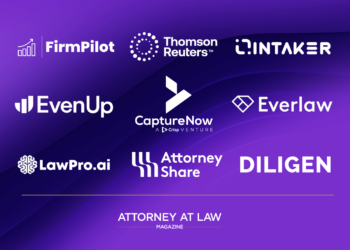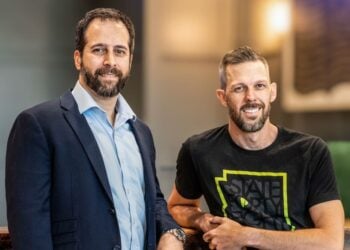It has been six years since the ABA added technology competence to the Model Rule 1.1. Florida requires three CLE credits each cycle and North Carolina and Pennsylvania have proposed changes to their CLE requirements. The rule states: “A lawyer should keep abreast of changes in the law and its practice, including the benefits and risks associated with relevant technology.” What are the relevant technologies available to lawyers today?
Here is an overview to help you understand how all the pieces fit together so that you can implement your practice’s technology ecosystem.
Practice Management Software (PM): This is the core of a firm’s ecosystem. It will have the essential functionality for managing clients, managing cases, and housing case matters. Platforms on the market in this category include Clio and Practice Panther.
Client Relation Management (CRM): CRM systems focus on lead generation and prospect management. Many can handle simple PM tasks and most PM systems can handle light lead generation. The decision to use a PM, CRM, or both depends mainly on the firm’s growth strategy.
Virtual Assistant: This is one of the fastest growing technologies for lawyers and there are many new players. With a virtual assistant, a firm can be reached at any time and they can be fully integrated with PM and CRM systems. These systems are designed to scale as the firm grows, so that it won’t need to hire additional assistants and paralegals.
E-Discovery: Many firms have embraced e-discovery over the last few years because of the sheer amount of data available in electronic form. This space will continue to grow as more records are made available in digital format and as machine learning systems work out how to discover better with each successful search. Many e-discovery systems can integrate with a PM system for seamless record keeping and case updating.
Billing and Timekeeping: Billable hours are still the standard. Billing and timekeeping software allows all members of staff and outsourced resources to maintain accurate records of task management and the time spent on tasks. The software can also identify tasks that need to be automated because they are not billable.
Task-Specific Automation: This technology is revolutionizing firms today. It is also very misunderstood because of the disruptive nature of automation. Some of the business tasks that used to be done by a lawyer or assistant can now be outsourced to an automation company.
The first that most lawyers think of is document creation. Documents no longer have to be typed out in Microsoft Word, since there are systems that use a minimal amount of information to draw up contracts, articles of formation, petitions, patent requests and any other document you can think of.
Such systems are offered primarily as software as a service (SaaS) and, despite what some people think, they do not break ethical or UPL rules. This was the main technology that the ABA was referring to in Model Rule 1.1 Comment 6. You should keep abreast of this field because it will become the backbone of the legal practices of tomorrow.
There are many resources available to help you understand the growing technology space. Many online CLE providers offer credits in technology even though these are not a requirement in all states – yet. Many of our industry leaders are writing about technology and there is a growing community of technologists and consultants who specialize in legal systems.
If you have not embraced any of the above technologies or have implemented only a PM system, you are not alone. Being a late adopter has its advantages, mainly price and experience. Most of the software providers offer free accounts and pay-as-you-use models.
This means you can sign up to get the world’s best technology at your fingers ready for when you need it. If you do only one or two business formations a month, that doesn’t mean you don’t need access to automation that allows some firms to do 100s a month. If you sign up in advance for an account, then the functionality will be there when you need it.
Technology will not only allow you to become more efficient and cut costs, it will also allow you to be a full-service firm without the overhead. Steve Sowers








